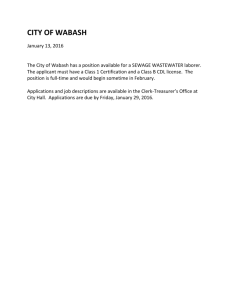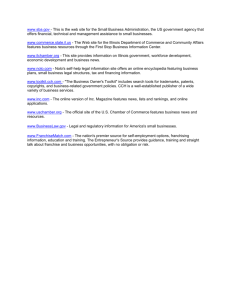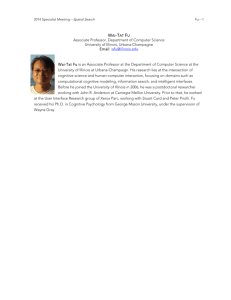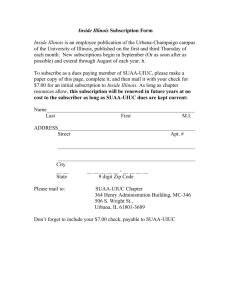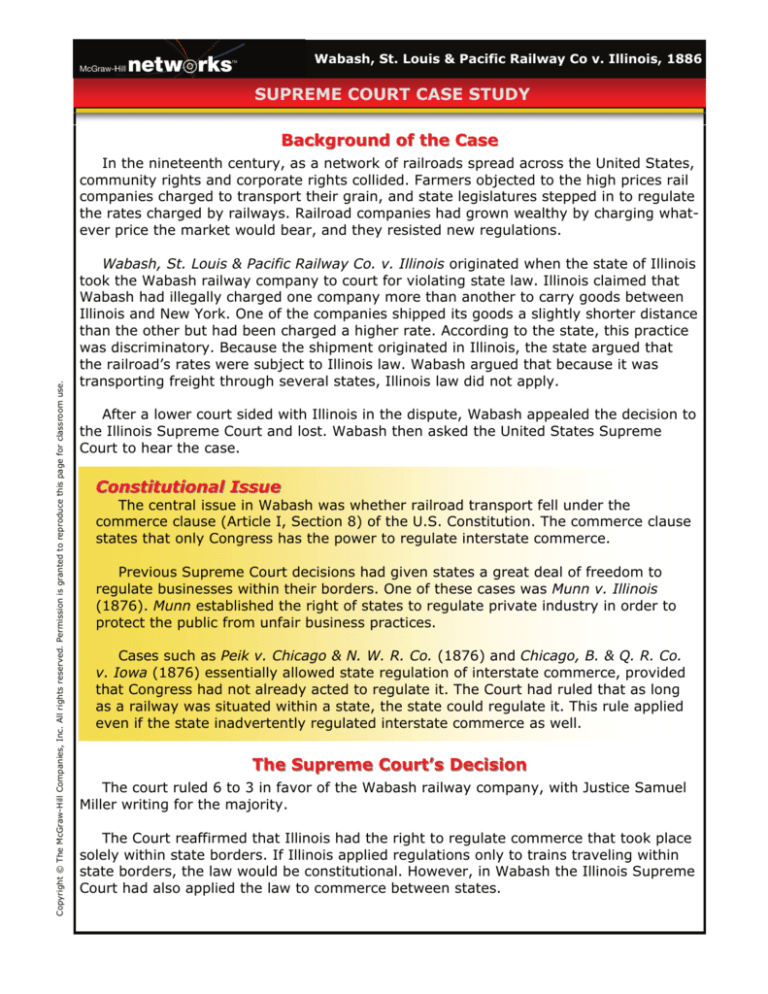
Wabash, St. Louis & Pacific Railway Co v. Illinois, 1886
SUPREME COURT CASE STUDY
Background of the Case
Copyright © The McGraw-Hill Companies, Inc. All rights reserved. Permission is granted to reproduce this page for classroom use.
In the nineteenth century, as a network of railroads spread across the United States,
community rights and corporate rights collided. Farmers objected to the high prices rail
companies charged to transport their grain, and state legislatures stepped in to regulate
the rates charged by railways. Railroad companies had grown wealthy by charging whatever price the market would bear, and they resisted new regulations.
Wabash, St. Louis & Pacific Railway Co. v. Illinois originated when the state of Illinois
took the Wabash railway company to court for violating state law. Illinois claimed that
Wabash had illegally charged one company more than another to carry goods between
Illinois and New York. One of the companies shipped its goods a slightly shorter distance
than the other but had been charged a higher rate. According to the state, this practice
was discriminatory. Because the shipment originated in Illinois, the state argued that
the railroad’s rates were subject to Illinois law. Wabash argued that because it was
transporting freight through several states, Illinois law did not apply.
After a lower court sided with Illinois in the dispute, Wabash appealed the decision to
the Illinois Supreme Court and lost. Wabash then asked the United States Supreme
Court to hear the case.
Constitutional Issue
The central issue in Wabash was whether railroad transport fell under the
commerce clause (Article I, Section 8) of the U.S. Constitution. The commerce clause
states that only Congress has the power to regulate interstate commerce.
Previous Supreme Court decisions had given states a great deal of freedom to
regulate businesses within their borders. One of these cases was Munn v. Illinois
(1876). Munn established the right of states to regulate private industry in order to
protect the public from unfair business practices.
Cases such as Peik v. Chicago & N. W. R. Co. (1876) and Chicago, B. & Q. R. Co.
v. Iowa (1876) essentially allowed state regulation of interstate commerce, provided
that Congress had not already acted to regulate it. The Court had ruled that as long
as a railway was situated within a state, the state could regulate it. This rule applied
even if the state inadvertently regulated interstate commerce as well.
The Supreme Court’s Decision
The court ruled 6 to 3 in favor of the Wabash railway company, with Justice Samuel
Miller writing for the majority.
The Court reaffirmed that Illinois had the right to regulate commerce that took place
solely within state borders. If Illinois applied regulations only to trains traveling within
state borders, the law would be constitutional. However, in Wabash the Illinois Supreme
Court had also applied the law to commerce between states.
Wabash, St. Louis & Pacific Railway Co v. Illinois, 1886
SUPREME COURT CASE STUDY continued
The Court overturned the Illinois law on the grounds that it violated the commerce
clause. The Court stated that transport by railway is interstate commerce, which can
only be regulated by Congress. In disregarding precedents such as Munn and Peik, the
Court argued that these cases had been decided only with an eye toward allowing necessary regulation of business in the public interest. The Court had not intended to use
the cases to address the issue of interstate commerce. If each state makes its own laws
about railway lines, complying with them all would cause a burden on the railroads.
The Wabash case led Congress to create the Interstate Commerce Commission (ICC)
in 1887. The commission was responsible for federal regulation of interstate commerce.
Copyright © The McGraw-Hill Companies, Inc. All rights reserved. Permission is granted to reproduce this page for classroom use.
Dissenting Opinion
Justice Joseph Bradley wrote the dissent in Wabash. Bradley argued that all previous
precedents pointed toward the right of states to regulate within their borders. He stated
that this right was essential to protecting the public good against corporate interests.
Further, Bradley noted that the state of Illinois did not dispute Congress’s authority to
regulate interstate commerce. The state was merely stepping in where Congress had
failed to act.
Bradley felt that the inconvenience of obeying state laws for railroad companies was
exaggerated. However, he stated, if the inconvenience was real, Congress could simply
take up the matter of regulation itself.
DIRECTIONS: Answer the following questions on a separate sheet of paper.
1. Why was the Illinois law in Wabash declared unconstitutional?
2. Why is the Wabash case important in history?
3. According to the Court’s decision, what would be the result of state regulation of railroads?
4. How was Wabash different from the earlier cases of Munn and Peik?
5. Do you agree more with Justice Miller’s opinion or Justice Bradley’s dissent? Give
reasons for your answer.

